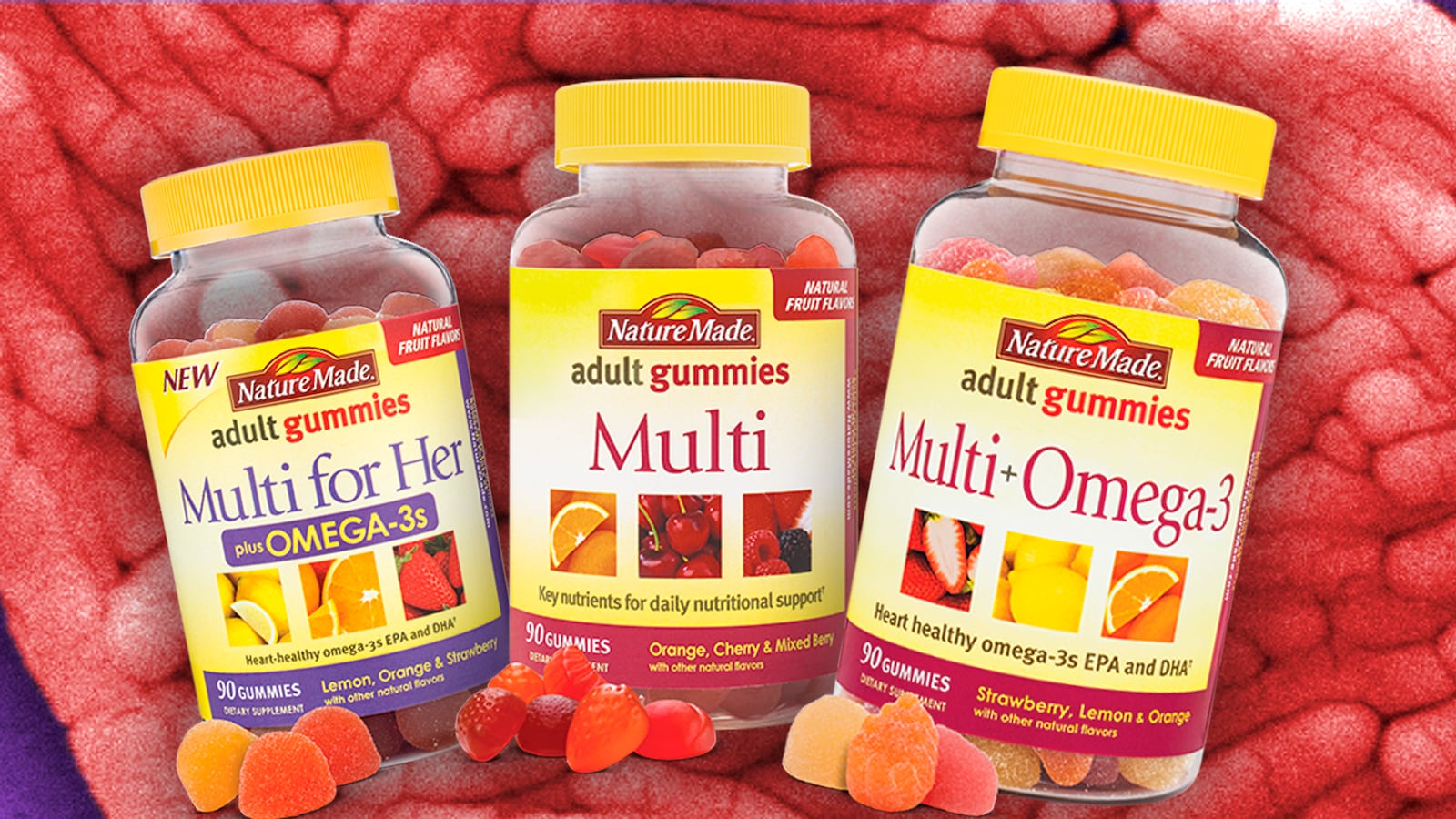Supplements are once again playing a dangerous game of hide and seek. Earlier this year it was weight loss pills, in which experts found a banned amphetamine. Now, it’s Nature Made gummy vitamins, which may be harboring a potentially deadly bacteria.
The California-based company recalled several varieties of its vitamins Wednesday over concerns that they contain salmonella or staphylococcus. “We are initiating this recall out of an abundance of caution for the public health,” the company said. “We are notifying all retail customers and distributors to remove the product from store shelves immediately.”
The U.S. Food and Drug Administration’s described the recall as “voluntary”; in other words, it’s the result of an error in testing and, as of yet, no illnesses have been reported. In the interim, the health community has taken to Twitter to offer “buyer beware” warnings and urge regular vitamin users to check their cabinets.
There are four types of Nature Made multivitamins on the FDA’s recall list, and an additional two on the company’s own website. Ranging from gummy vitamins to vitamin D tablets, some of the products come in as many as eight different varieties. All told, there are 21 Nature Made products that are potentially contaminated.
While foreign substances hiding in supplements aren’t necessarily new, potentially deadly microorganisms are. Both salmonella and staph can cause extreme sickness and, in some circumstances, death.
Salmonella, a rod-shaped bacteria first discovered in the 1880s, can cause severe infections in people with insufficient immune systems. With hallmark symptoms of fever, diarrhea, nausea, vomiting, and abdominal pain, the sickness generally resolves within a few days.
According to the Centers for Disease Control and Prevention, it is the cause of at least one million foodborne illnesses each year, prompting 19,000 hospitalizations and causing 380 deaths. While salmonella outbreaks have been cataloged since the ’60s, there has been a recent uptick in the past few months—including a seven state outbreak with a total of 324 cases—all related to live poultry.
Staphylococcus is a different beast. The bacteria is mostly benign, found on the skin, hair, and noses of 25-30 percent of humans. Although harmless on the body, staphylococcus can turn dangerous when introduced to food. There, it can produce toxins that induce a severe sickness characterized by nausea, vomiting, diarrhea, and abdominal cramps.
The effects of this bacteria can be felt in as little as 30 minutes, and generally last a day or two. Most often staph results from food that is uncooked or improperly stored—much like salmonella.
In a press release, Nature Made’s parent company Pharmavite says it “has identified the cause of the error” and is implementing “corrective actions to rectify the issue.” An ingredient list for the gummy vitamins shows the presence of “natural fruit flavors,” but nothing else that resembles food.
Getting ill from supplements marketed to make you healthier would be a cruel irony. But the dangers posed by products like Nature Made’s are seemingly never-ending, rooted in the FDA’s classification of supplements as a food rather than a drug.
In a November paper on the topic published by Drug Testing and Analysis, Akshay Kapoor and Joshua M. Sharfstein note that beyond the problem of companies “spiking” supplements with illicit pharmaceuticals, is the failure to comply with manufacturing standards. A problem that, based on the just 400 inspections that the FDA performs on 15,000 manufacturers, isn’t entirely their fault.
Those they do review are rarely up to code. “The agency finds significant deficiencies in about two-thirds of all the inspections it conducts, with most facilities cited for multiple, serious violations,” the paper reads. Among the violations: failure to confirm that supplements meet “product specifications” such as purity and composition; failure to “verify the identity” of individual ingredients; and failure to “establish and/or follow” quality control procedures.
Given these facts, it’s almost surprising that a recall of this nature hasn’t happened before. If Kapoor and Sharfstein have anything to do with it, it never would again. The two suggest an “alternate approach” in which policymakers embrace the goal of promoting access to safe dietary supplements.”
Until they do, consumers may be left to determine the safety of supplements themselves—a tall and messy order.






